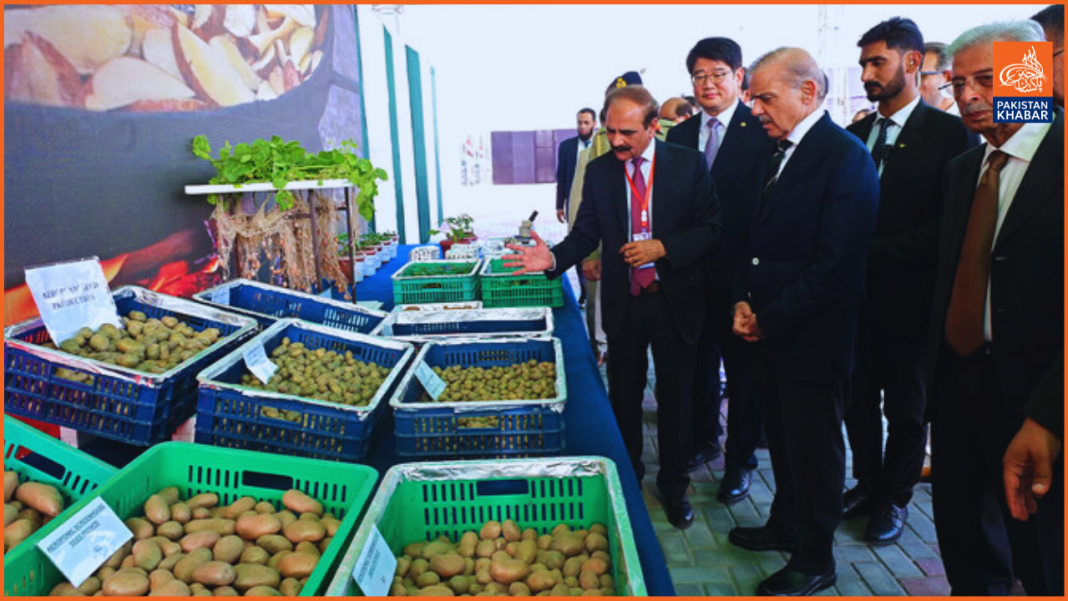Pakistan has partnered with South Korea to introduce aeroponic technology for producing high-quality seed potatoes. Aeroponics involves cultivating plants in an air or mist environment without soil, promoting optimal growth with minimal water usage—a sustainable approach gaining global traction in urban and vertical farming.
Agriculture plays a pivotal role in Pakistan’s economy, contributing approximately 23% to the GDP and employing around 37.4% of the labor force. The country ranks ninth globally in potato production, with output increasing from 5.87 million tons in 2020-21 to an estimated 8.01 million tons in 2022-23.
The Seed Potato Production and Aeroponics Complex is a collaborative effort between the Korea Partnership for Innovation in Agriculture (KOPIA) and the Pakistan Agricultural Research Council (PARC). The project encompasses the construction of four aeroponic greenhouses, 35 screen houses, a cold storage facility, and a 100-kW solar power system. Traditional potato cultivation yields about five tubers per plant, whereas aeroponic methods can produce 50 to 60 tubers per plant, significantly boosting productivity.
This initiative aims to reduce Pakistan’s reliance on imported seed potatoes, which ranges between 6,000 to 12,000 tons annually, thereby decreasing the import bill and enhancing food security. Prime Minister Shehbaz Sharif inaugurated the aeroponic cultivation system at the National Agricultural Research Center, highlighting the government’s commitment to modernizing agriculture through international partnerships.




